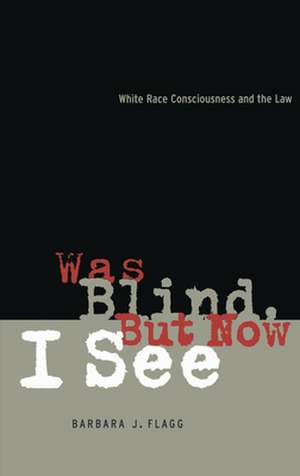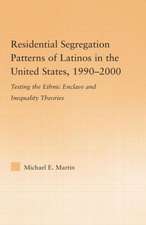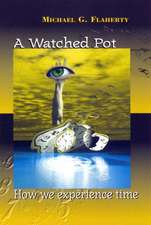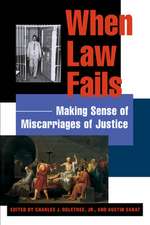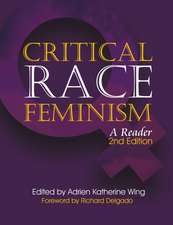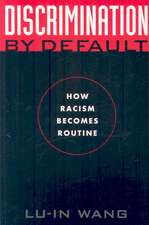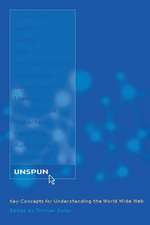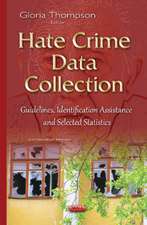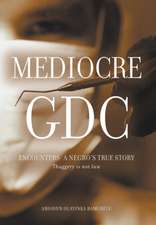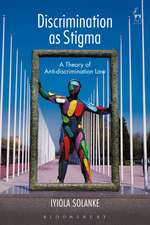Was Blind, But Now I See – White Race Concsiousness and the Law: Critical America
Autor Barbara J. Flaggen Limba Engleză Hardback – 30 noi 1997
Din seria Critical America
-
 Preț: 123.12 lei
Preț: 123.12 lei -
 Preț: 256.86 lei
Preț: 256.86 lei -
 Preț: 216.04 lei
Preț: 216.04 lei -
 Preț: 201.62 lei
Preț: 201.62 lei -
 Preț: 223.58 lei
Preț: 223.58 lei - 23%
 Preț: 584.77 lei
Preț: 584.77 lei -
 Preț: 250.89 lei
Preț: 250.89 lei - 23%
 Preț: 525.71 lei
Preț: 525.71 lei -
 Preț: 247.40 lei
Preț: 247.40 lei -
 Preț: 250.89 lei
Preț: 250.89 lei -
 Preț: 239.73 lei
Preț: 239.73 lei -
 Preț: 262.04 lei
Preț: 262.04 lei -
 Preț: 242.01 lei
Preț: 242.01 lei -
 Preț: 242.22 lei
Preț: 242.22 lei -
 Preț: 248.17 lei
Preț: 248.17 lei -
 Preț: 251.27 lei
Preț: 251.27 lei -
 Preț: 241.08 lei
Preț: 241.08 lei -
 Preț: 205.32 lei
Preț: 205.32 lei -
 Preț: 248.59 lei
Preț: 248.59 lei -
 Preț: 247.40 lei
Preț: 247.40 lei -
 Preț: 245.67 lei
Preț: 245.67 lei -
 Preț: 225.71 lei
Preț: 225.71 lei -
 Preț: 224.33 lei
Preț: 224.33 lei -
 Preț: 246.86 lei
Preț: 246.86 lei -
 Preț: 502.77 lei
Preț: 502.77 lei -
 Preț: 242.78 lei
Preț: 242.78 lei -
 Preț: 227.62 lei
Preț: 227.62 lei -
 Preț: 241.85 lei
Preț: 241.85 lei -
 Preț: 227.44 lei
Preț: 227.44 lei -
 Preț: 222.60 lei
Preț: 222.60 lei -
 Preț: 250.67 lei
Preț: 250.67 lei -
 Preț: 236.06 lei
Preț: 236.06 lei -
 Preț: 242.60 lei
Preț: 242.60 lei -
 Preț: 238.96 lei
Preț: 238.96 lei -
 Preț: 226.09 lei
Preț: 226.09 lei -
 Preț: 241.64 lei
Preț: 241.64 lei -
 Preț: 266.07 lei
Preț: 266.07 lei -
 Preț: 206.85 lei
Preț: 206.85 lei -
 Preț: 224.33 lei
Preț: 224.33 lei -
 Preț: 237.22 lei
Preț: 237.22 lei -
 Preț: 210.16 lei
Preț: 210.16 lei -
 Preț: 242.22 lei
Preț: 242.22 lei -
 Preț: 294.42 lei
Preț: 294.42 lei -
 Preț: 209.17 lei
Preț: 209.17 lei - 23%
 Preț: 533.56 lei
Preț: 533.56 lei
Preț: 521.10 lei
Preț vechi: 676.76 lei
-23% Nou
Puncte Express: 782
Preț estimativ în valută:
99.74€ • 102.78$ • 84.20£
99.74€ • 102.78$ • 84.20£
Carte tipărită la comandă
Livrare economică 03-17 martie
Preluare comenzi: 021 569.72.76
Specificații
ISBN-13: 9780814726433
ISBN-10: 0814726437
Pagini: 204
Dimensiuni: 152 x 229 x 15 mm
Greutate: 0.35 kg
Editura: MI – New York University
Seria Critical America
ISBN-10: 0814726437
Pagini: 204
Dimensiuni: 152 x 229 x 15 mm
Greutate: 0.35 kg
Editura: MI – New York University
Seria Critical America
Notă biografică
Barbara J. Flagg is Professor of Law at the Washington University School of Law in St. Louis. She graduated from the Boalt Hall School of Law at the University of California, Berkeley, and was a former law clerk for then-Court of Appeals Judge Ruth Bader Ginsburg,
Textul de pe ultima copertă
"Race" does not speak to most white people. Rather, whites tend to associate race with people of color and to equate whiteness with racelessness. As Barbara J. Flagg demonstrates in this important book, this "transparency" phenomenon - the invisibility of whiteness to white people - profoundly affects the ways in which whites make decisions: they rely on criteria perceived by the decisionmaker as race-neutral but which in fact reflect white, race-specific norms. Flagg here identifies this transparently white decisionmaking as a form of institutional racism that contributes significantly, though unobtrusively, to the maintenance of white supremacy. Bringing the discussion to bear on the arena of law, Flagg analyzes key areas of race discrimination law and makes the case for reforms that would bring legal doctrine into greater harmony with the recognition of institutional racism in general and the transparency phenomenon in particular. She concludes with an exploration of the meaning of whiteness in a pluralist culture, paving the way for a positive, nonracist conception of whiteness as a distinct racial identity. An informed and substantive call for doctrinal reform, Was Blind, But Now I See is the most expansive treatment yet of the relationship between whiteness and law.
